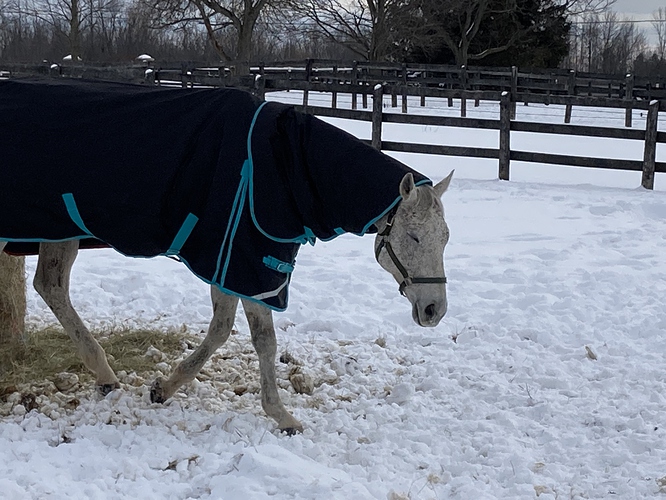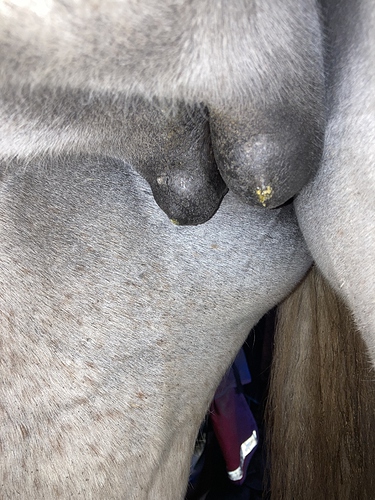I don’t know what to do. I have a 17 y/o tb mare with trauma. We have come so far, yet feel like we are not making much progress.
She came to me with a body scale of 2, she’s not a great eater. After lots of GastroGuard, we went grain free and that seemed to help her gain and settle.
She’s had narcolepsy the whole 18 months I’ve had her. Due to getting callous on he fetlocks she wears quick wraps at night. Vet feels it’s a pain induced narcolepsy due to the way she reacts to tranq.
She’s come in shaking like she’s cold, yet she’s snug as a bug in her blankets. She settles out of the shaking, but it comes on for no reason. She’s body sore, nasty to groom, even with work has issues cantering. She can’t hold the canter, and cross fires.
Vet is coming tomorrow. Looking for ideas of tests to ask for. Lyme? EPM? PSSM?
This girl has a home with me for life, just want to make her comfortable. She’s the best hack horse I’ve ever had.
She gets regular osteo treatments. She didn’t like massage or chiro. Touch and stimulation is hard for her.
IMG_3540


